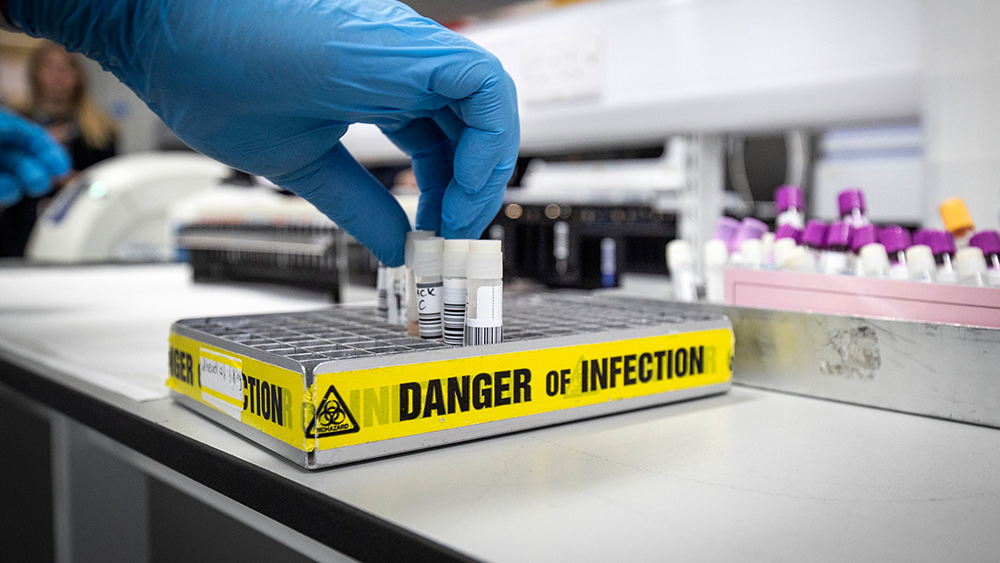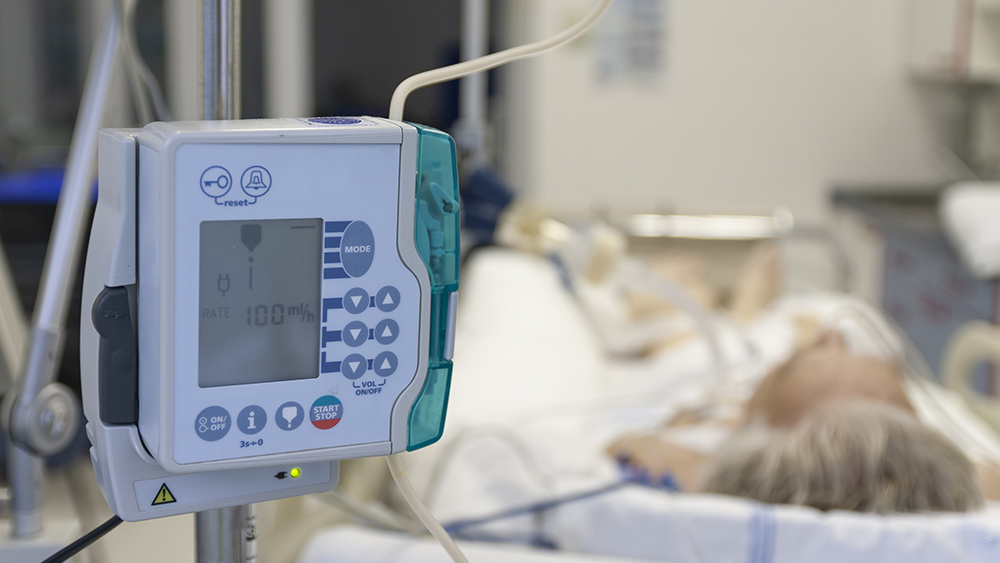Optimizing vitamin D intake can help treat psoriasis and vitiligo
03/22/2022 / By Zoey Sky

A study suggests that optimizing your vitamin D intake can help treat skin conditions like psoriasis and vitiligo.
Psoriasis is an inflammatory skin disorder characterized by painful and itchy lesions. It affects at least 125 million individuals worldwide.
Visible signs of the inflammation linked to psoriasis may include raised plaques and scales on the skin.
Psoriasis occurs because an overactive immune system speeds up a person’s skin cell growth. An individual without vitiligo has skin cells that completely grow and shed or fall off within one month.
However, if you have psoriasis, your skin cells fall off in only three or four days. And instead of shedding, the skin cells pile up on the surface of your skin.
Some people with psoriasis report that their plaques burn, itch and sting. Plaques and scales may appear on any part of the body, although they are often found on the elbows, scalp and knees.
Psoriasis may have an autoimmune origin, but some experts say psoriasis occurs because of an abnormal response to the bacterial microbiota of the skin. Approximately one out of five individuals with psoriasis report substantial dissatisfaction with treatment for the condition.
Meanwhile, vitiligo is an autoimmune disorder characterized by skin color loss in different areas of the body. The condition affects one percent of the world’s population. Experts believe vitiligo represents an autoimmune condition targeted against melanocytes or pigment cells.
At least 50 percent of people with vitiligo develop it before they turn 20. The condition is often categorized into the more common symmetrical form called generalized vitiligo and a less common segmental variety, which affects only one side of the body.

Both psoriasis and vitiligo are associated with psychological comorbidities, especially since visible manifestations of the conditions may cause feelings of social stigmatization and marginalization.
According to a systematic review and meta-analysis of studies involving 1,767,583 participants, those with psoriasis were twice as likely to show suicidal ideation. At least 26 percent of the 330,207 participants with psoriasis exhibited suicidal behavior, including suicide attempts and completed suicides.
How can vitamin D help with psoriasis and vitiligo?
In one pilot study, researchers administered 35,000 international units (IU) of vitamin D3 daily to 16 vitamin D-deficient patients with vitiligo and nine such patients with psoriasis for six months. The volunteers were also instructed to follow a calcium-restricted diet and get adequate hydration.
Generally, health care providers recommend 1,000 IU of vitamin D a day. In the study, researchers administered 35,000 IU of vitamin D to address the effects of genetic polymorphisms common in autoimmune disease.
Dairy products and calcium-enriched foods like oats, rice and soy milk were excluded in the participants’ diet to prevent soft tissue calcifications that may occur due to potential vitamin D toxicity. (Related: Treat psoriasis naturally with vitamin D and zinc.)
Some studies suggest that vitamin D conforms to a biphase dose-response curve, where both deficient and excessive levels can cause the dangerous formation of calcium in blood vessels that can result in atherosclerotic changes often linked to heart disease.
But at appropriate levels, vitamin D can help prevent processes that are crucial for intimal and medial artery calcification like “pro-inflammatory cytokine release, adhesion molecule release and proliferation and migration of vascular smooth muscle cells.”
When vitamin D is either too high or low, the nutrient can promote atherogenic soft tissue calcifications. This is why the researchers restricted dietary calcium during the study.
Findings revealed that there was a significant improvement in lesion severity in all psoriasis patients as indicated by the Psoriasis Area and Severity Index (PASI) score compared to baseline. Additionally, 25 to 75 percent re-pigmentation occurred in 14 of the 16 vitiligo subjects.
Laboratory and clinical manifestations of vitamin D toxicity, like hypercalcemia, hypercalciuria and kidney dysfunction were not observed in the participants.
The researchers conclude that high-dose vitamin D3 therapy may be an “effective and safe” treatment for people with psoriasis and vitiligo.
Watch the video below to know more about the health benefits of vitamin D.
This video is from the Holistic Herbalist channel on Brighteon.com.
More related stories:
Do you have high cholesterol or triglycerides? Check your vitamin D levels.
Sufficient vitamin D levels can prevent severe COVID-19 outcomes, including death.
Sources include:
Submit a correction >>
Tagged Under:
alternative medicine, autoimmune disease, health science, healthy skin, immune system, natural cures, natural health, natural medicine, nutrients, psoriasis, remedies, research, skin conditions, skin health, supplements, vitamin D, vitiligo
This article may contain statements that reflect the opinion of the author




















